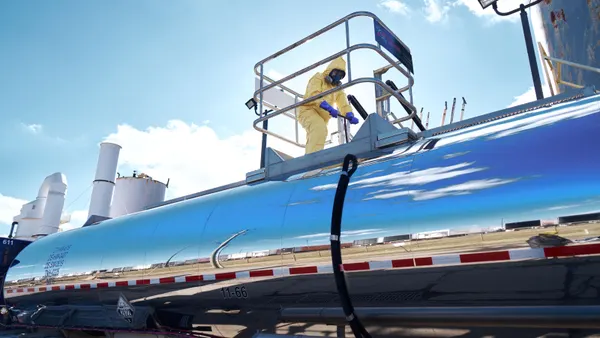Dive Brief:
- According to a new report, 17 recycling industry workers were killed on the job at recycling materials recovery facilities between 2011 and 2013. Hazards that contributed to these fatalities included being caught or crushed in balers and other heavy machinery during maintenance or while trying to clear jams in them; being struck by vehicles like forklifts, bulldozers and trucks; being crushed by falling bales, and being buried by debris.
- The report, “Sustainable And Safe Recycling: Protecting Workers Who Protect The Planet,” found industry workers are injured on the job at high rates and that the injuries often are severe. While the rate for nonfatal injuries across all industries was 3.5 per 100 workers, in recycling the rate of such incidents in MRFs in 2012 was 8.5 per 100 workers. The rate of nonfatal injury incidents for all waste management and remediation services is 5.1 per 100 workers, according to U.S. Bureau of Labor Statistics 2014 data.
- In a 2013 survey of recycling industry workers, more than two-thirds of all workers surveyed had an injury or illness due to workplace conditions, the report notes. Back and knee injuries were the most common, and were reported by 57% of workers surveyed; while scrapes and cuts were reported by 43% of workers surveyed. Crushed and/or amputated fingers or limbs, while not as common, also plague recycling industry workers.
Dive Insight:
While injuries to recycling workers that involved death or dismemberment may be the accidents most often reported by media, other less obvious ones related to dust, noise, and smell, exposure to hazardous materials, cuts, falls, and repetitive motion injuries are common in recycling, the report states. Using temporary labor in recycling also presents problems, since temporary workers earn less than their peers who have regular jobs, are more likely to be injured on the job, and often are hesitant to voice their health and safety concerns.
While improvements have been made in how workers pick up curbside trash and in the machinery they use for the task, potentially more could be done to create safer working conditions in MRFs, such as installing controls to prevent accidental machinery start-ups, which can cause injuries and deaths.









